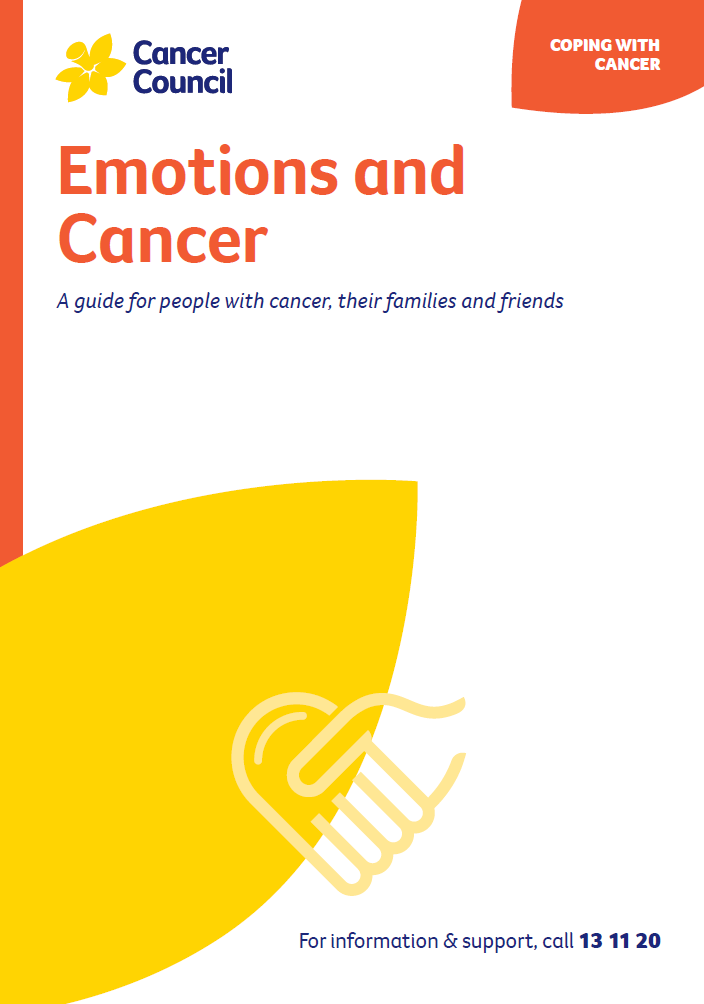- Home
- About Cancer
- Advanced cancer
- Living with advanced cancer
- The people in your life
- Ways to share how you’re feeling
Ways to share how you’re feeling
Everyone responds to a cancer diagnosis in their own way. How you feel and how you want to communicate that can also change over time and may depend on how well you feel or what other things are going on in your life. You might like to share your experience using some of the ideas below.
Choose a key contactSome people find that having one family member or friend as a central contact person means you don’t have to repeat information. You can tell that person what information you are happy for them to share – and what areas you might need some help with – and then they can manage people’s concerns along with their offers of help. | |
Use technologyThere are many ways to keep friends and family updated when you don’t have the time or energy to talk with people individually. Use text messages, email, blogs or social media, or write one letter and send copies to friends and family. If you’d like to know what others are up to, then let them know you’d be happy to hear their replies. | |
When you don’t want to talkSometimes you may not want to share your fears and concerns with your family and friends. This is completely normal. You may feel uncomfortable discussing private matters, struggle to find the words to describe your feelings, or worry that you will get upset. Putting things into words can make it seem more real, and you might not feel ready to discuss some things yet. That’s okay. Rather than ignoring messages, it can help to let people know if you just don’t want to talk at the moment. | |
Have open conversationsSome family and friends seem to know when you need to share your feelings, and just when to be there for you. But not everyone can tell when you are having a bad day or need to talk – it may be confusing when there may be days you don’t feel like sharing at all and others that you do. It can help to be open, honest and direct about when you need to share, and what you need most. For example, a text saying you’d like to talk on the phone and is now a good time, or asking if you can catch up in person as you need a hug and someone to listen more than a big conversation. | |
Get creativeYou can explore your feelings by writing in a journal, creating artwork or composing a song. You can choose whether to share your work or keep it to yourself, or save it as a gift for someone at a later time. | |
Join a support groupTalking about your fears and concerns with people who are going through a similar experience can often be easier. Consider joining a support group, talking to a health professional or calling Cancer Council on 13 11 20 to talk to a nurse or counsellor. |
→ READ MORE: Treatment for advanced cancer
Podcast: Family Dynamics and Cancer
Listen to more episodes from our podcast for people affected by cancer
More resources
Dr Lucy Gately, Medical Oncologist, Alfred Health and Walter and Eliza Institute for Medical Research, VIC; Dr Katherine Allsopp, Supportive and Palliative Care Specialist, Westmead Hospital, NSW; A/Prof Megan Best, The University of Notre Dame Australia and The University of Sydney, NSW; Dr Keiron Bradley, Palliative Care Consultant, Medical Director Palliative Care Program, Bethesda Health Care, WA; Craig Brewer, Consumer; Emeritus Professor Phyllis Butow, Psychologist, The University of Sydney and Chris O’Brien Lifehouse, NSW; Louise Durham, Palliative Care Nurse Practitioner Outpatients, Princess Alexandra Hospital, Metro South Palliative Care, QLD; Dr Roya Merie, Radiation Oncologist, ICON Cancer Centre, Concord, NSW; Penny Neller, Project Coordinator, National Palliative Care Projects, Australian Centre for Health Law Research, Queensland University of Technology, QLD; Caitriona Nienaber, 13 11 20 Consultant, Cancer Council WA; Xanthe Sansome, Program Director, Advance Care Planning Australia, VIC; Sparke Helmore Lawyers; Peter Spolc, Consumer.
View the Cancer Council NSW editorial policy.
View all publications or call 13 11 20 for free printed copies.
Need to talk?
Support services
Online Community
Check out this supportive online community for people affected by cancer
Cancer Connect
Talk to someone who has experienced cancer
Cancer information
The emotional impact of advanced cancer
First reactions and ongoing effects of an advanced cancer diagnosis
Making treatment decisions for advanced cancer
Weighing up the benefits and side effects of treatment

